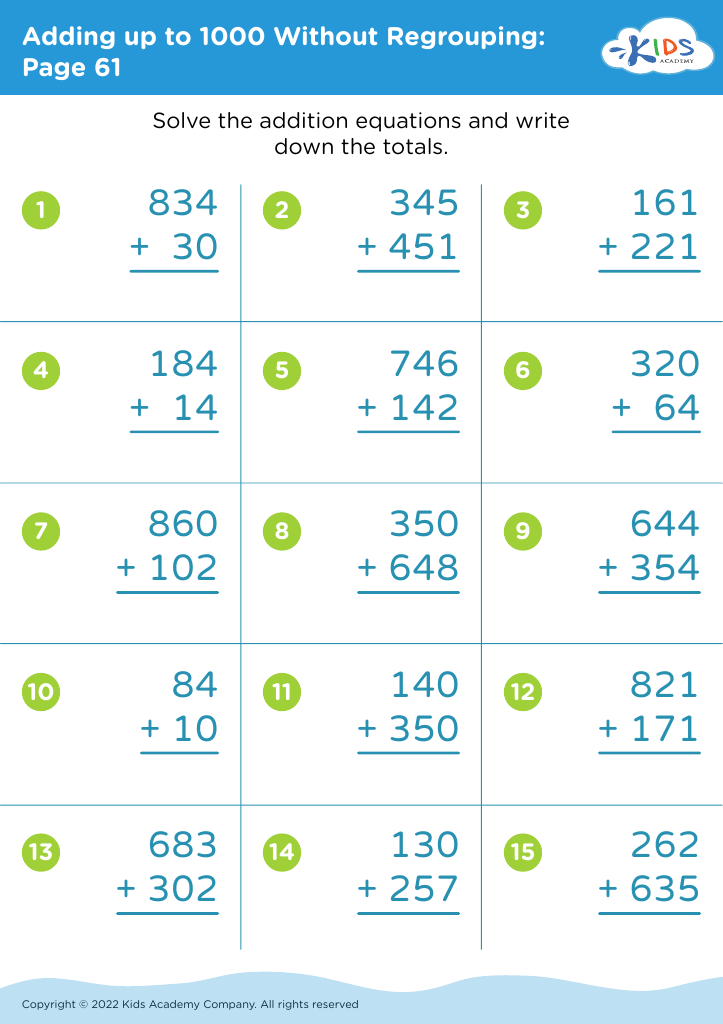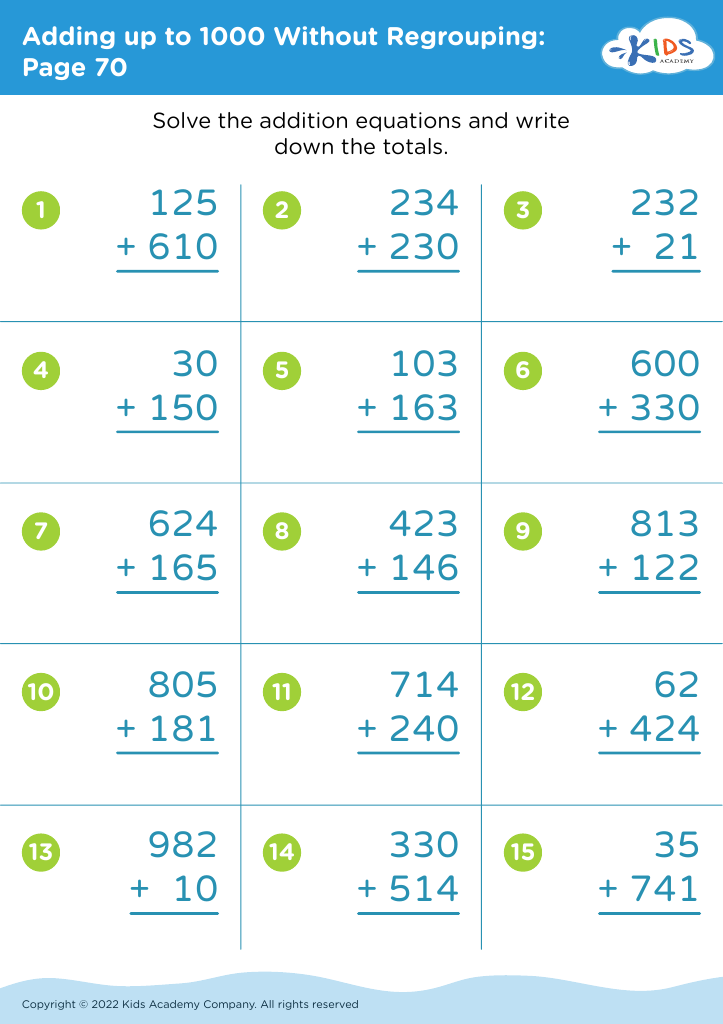Basic Addition Adding up to 1000 Without Regrouping Worksheets for Ages 5-8
4 filtered results
-
From - To
Welcome to our Basic Addition Worksheets, designed for children aged 5-8! Focused on helping young learners master addition up to 1000, these engaging worksheets emphasize building strong foundational math skills without regrouping. Our resources feature colorful and interactive exercises that motivate kids to practice adding single and double-digit numbers with ease. Whether in the classroom or at home, these worksheets provide a fun way to enhance math fluency and boost confidence. Ideal for reinforcing key concepts, assessing progress, or enriching your child’s learning experience, these addition worksheets are a valuable tool for any young mathematician's journey!
Basic addition, especially adding numbers up to 1000 without regrouping, is a fundamental skill that builds the foundation for future mathematical understanding. For children aged 5 to 8, mastering this concept is crucial for several reasons. First, it enhances their numerical fluency, allowing them to perform calculations quickly and confidently. This fluency fosters a love for math, encouraging children to engage more deeply with the subject.
Moreover, understanding basic addition lays the groundwork for more complex mathematical concepts, such as subtraction, multiplication, and eventually, algebra. When children learn to add without regrouping, they develop essential problem-solving skills and gain the ability to approach more advanced math with a solid foundation.
Parents and teachers play a pivotal role in encouraging this skill. Engaging with children through fun activities like games or real-life scenarios helps them see the value of addition in everyday life. Additionally, recognizing a child’s progress in this area can boost their self-esteem, motivating them to tackle more challenging problems.
Ultimately, caring about basic addition for young learners is about nurturing their overall cognitive development and ensuring they are well-prepared for the mathematical challenges of the future.














